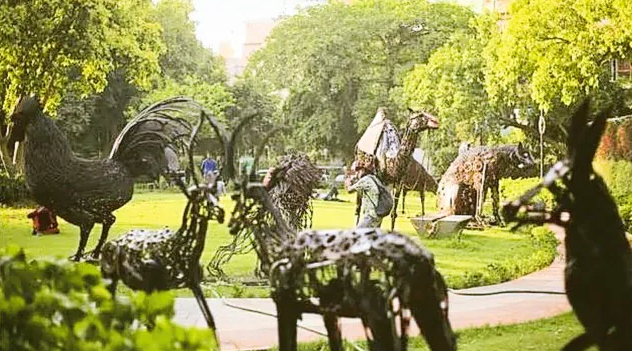Elaboration on Centre-State Relations and Federalism in India (GS Paper 2, Polity)

General Election 2024 Results and Its Implications:
- The surprising outcome of the 2024 general elections, marked by increased representation of regional parties in Parliament, signifies a significant shift in Indian politics.
- This shift towards greater democratisation indicates a maturing of India's electoral landscape, where regional voices and interests are gaining prominence.
- The enhanced representation of regional parties is expected to have profound implications for Centre-State relations and the federal structure of governance in India.
Contentious Centre-State Relations:
- The period leading up to the general elections witnessed heightened tensions between the Centre and Opposition-ruled States.
- The ruling party's campaign rhetoric, including proposals like 'one nation one election,' and perceived threats against Opposition leaders, exacerbated these tensions.
- Opposition-ruled States voiced grievances of discriminatory treatment and neglect by the Centre, leading to protests and legal challenges.
- These developments underscored the strains in Centre-State relations and raised concerns about the erosion of federal principles.
Federalism and Cooperative Federalism:
- While cooperative federalism was initially championed as a cornerstone of governance by the ruling party in 2014, recent years have seen challenges to this concept.
- Despite efforts such as the implementation of the Goods and Services Tax (GST), disagreements over resource allocation and decision-making have strained Centre-State relations.
- The evolving dynamics between the Centre and States underscore the need to recalibrate the balance of power and cooperation in India's federal structure.
Diversity and Autonomy of States:
- India's federal structure is rooted in its diversity, with States having significant autonomy to address local issues and priorities.
- However, conflicts often arise over resource allocation, with the Centre wielding considerable control over revenue sources and influencing the decisions of the Finance Commission.
- The autonomy of States is crucial for fostering inclusive governance and addressing the diverse needs of India's vast population.
Inter-State Tussles and Centre-State Relations:
- Inter-State conflicts often stem from divergent needs and disparities in resource distribution.
- While efforts have been made to address inequality through mechanisms like Finance Commission awards, accusations of favouritism and bias persist.
- The strained relationship between the Centre and States underscores the challenges in fostering trust and cooperation in India's federal structure.
Call for 'Double Engine Sarkar' and Issues in Federalism:
- The concept of a 'double engine government,' where the ruling party controls both the Centre and State, has raised concerns about the erosion of State autonomy.
- This approach threatens to undermine federalism and exacerbate existing issues in resource allocation and decision-making.
- The dominance of the Centre in key policy areas has led to allegations of favouritism and centralisation of power, further complicating Centre-State relations.
Addressing Issues in Federalism:
- To strengthen federalism and promote collaborative governance, several measures are proposed.
- Increasing the devolution of resources to States, enhancing joint decision-making between the Centre and States, and addressing governance issues at both levels are essential steps towards building a more inclusive and effective governance framework.
- By fostering a culture of cooperation and mutual respect between the Centre and States, India can realise its vision of a vibrant and inclusive federal democracy.


